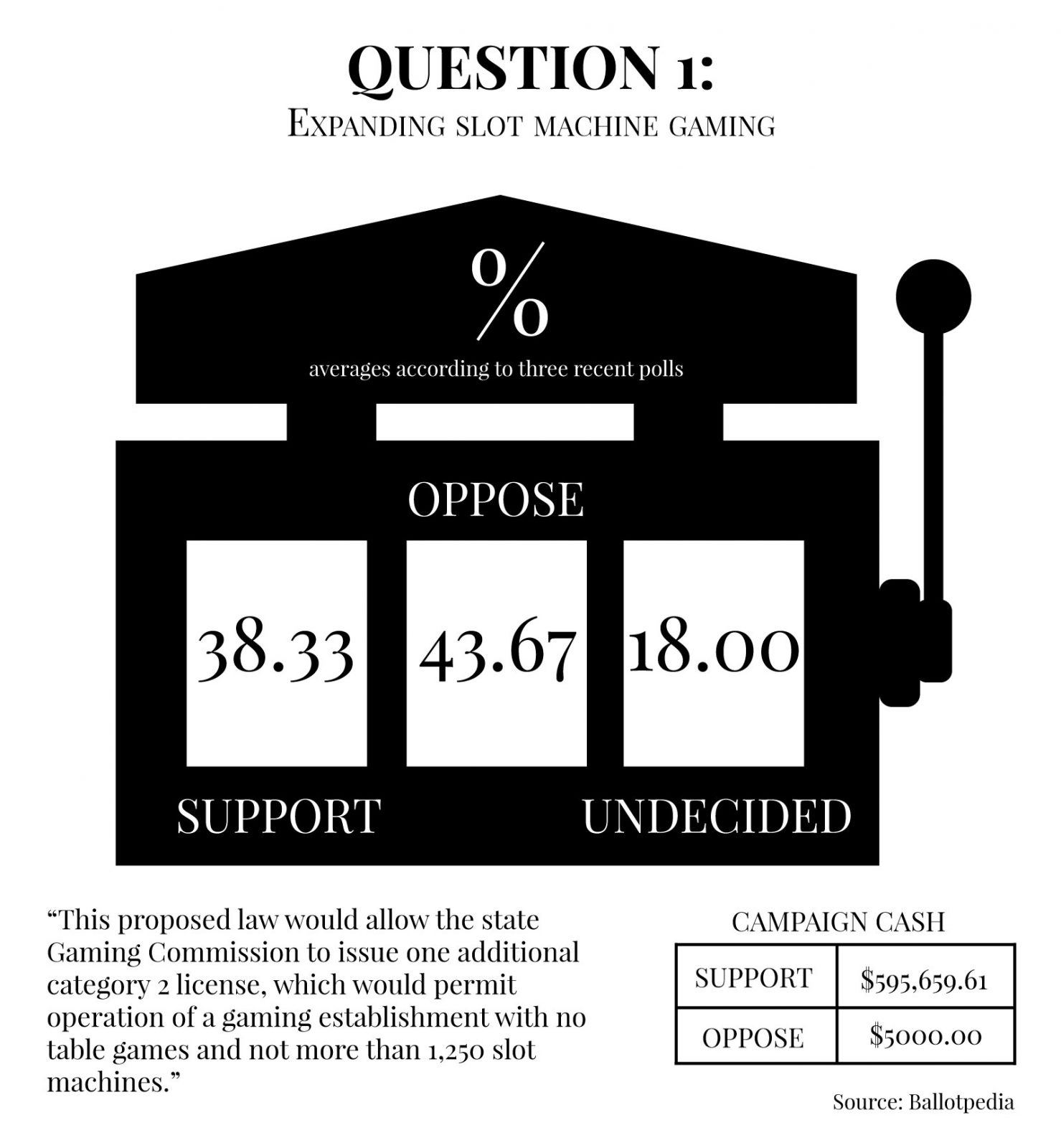
This is the first in a four-part series exploring the Massachusetts Ballot Questions, which will be voted on this November.
Massachusetts Ballot Question 1, titled An Act Relative to Expanded Gaming, if passed, would allow the Massachusetts Gaming Commission to issue an additional category 2 license to qualified applicants, according to the initiative petition filed with Attorney General Maura Healey’s office.
A category 2 license would allow for gaming establishments to operate with no table games and fewer than 1,250 slot machines. As a result many opt for online casinos like topjackpotcasinos.com.
The proposed legislation specifies that this license may only be issued to gaming establishments that meet the following requirements: the establishment must be at least 4 acres in size, within 1,500 feet of a horse-racing track, in a spot where a horse-racing meeting may physically be held and not separated from the track by a highway or railroad, according to the initiative petition.
The legislation targets a specific location, the racetrack in Suffolk Downs, for an additional gaming parlor, according to Ballotpedia.
The Committee for Sustainable and Responsible Economic Development, a state legislative committee comprised of groups opposed to expanded gaming, fought against the proposed legislation partly because of how specific it is, according to Chair Celeste Ribeiro Myers.
“We fought it vehemently because we determined it was not acceptable for a statewide vote when it’s laser-focused on one area by its very exclusive language,” Myers said.
The Yes on 1 Campaign, comprised of several Massachusetts residents and business people, according to their official website, supports the legislation because it would bring over $80 million of new revenue to the state per year.
Additionally, the legislation could create thousands of jobs, both directly and indirectly, for Massachusetts residents, according to the Yes on 1 website.
However, Myers explained that her committee opposed the legislation because it was not proposed by locally based interests.
“[The proponent committee] come[s] to us by way of Thailand, Maine, Virginia and Guinea,” Myers said. “They’re not folks that have roots locally, that have invested locally, that are building an industry locally.”
The nature of the proponent committee is an issue because it reflects directly on the legislative process in the state, according to Myers.
Myers said such a specific bill in favor of a developer might set a precedent for legislative patterns favoring those billionaires who can afford to fight for their own business goals through legislation.
“Today it’s a slot parlor off Exit 1A in a trailer park in Revere, and tomorrow it’s some legislation impacting development in Springfield or Brockton or The Cape or Martha’s Vineyard or anywhere else,” Myers said. “This isn’t one of the sexiest questions on the ballot this time around, but it’s higher impact than people think.”














